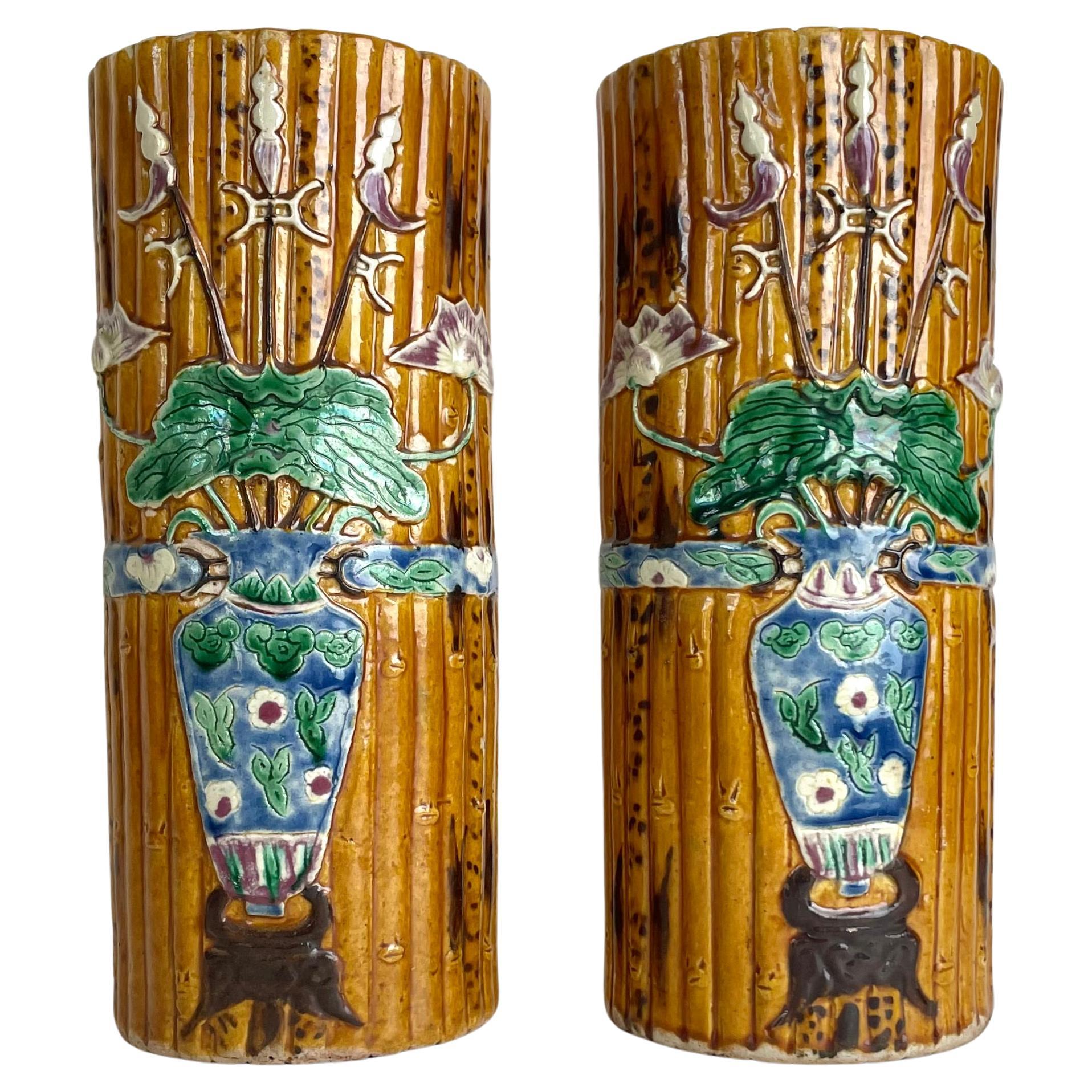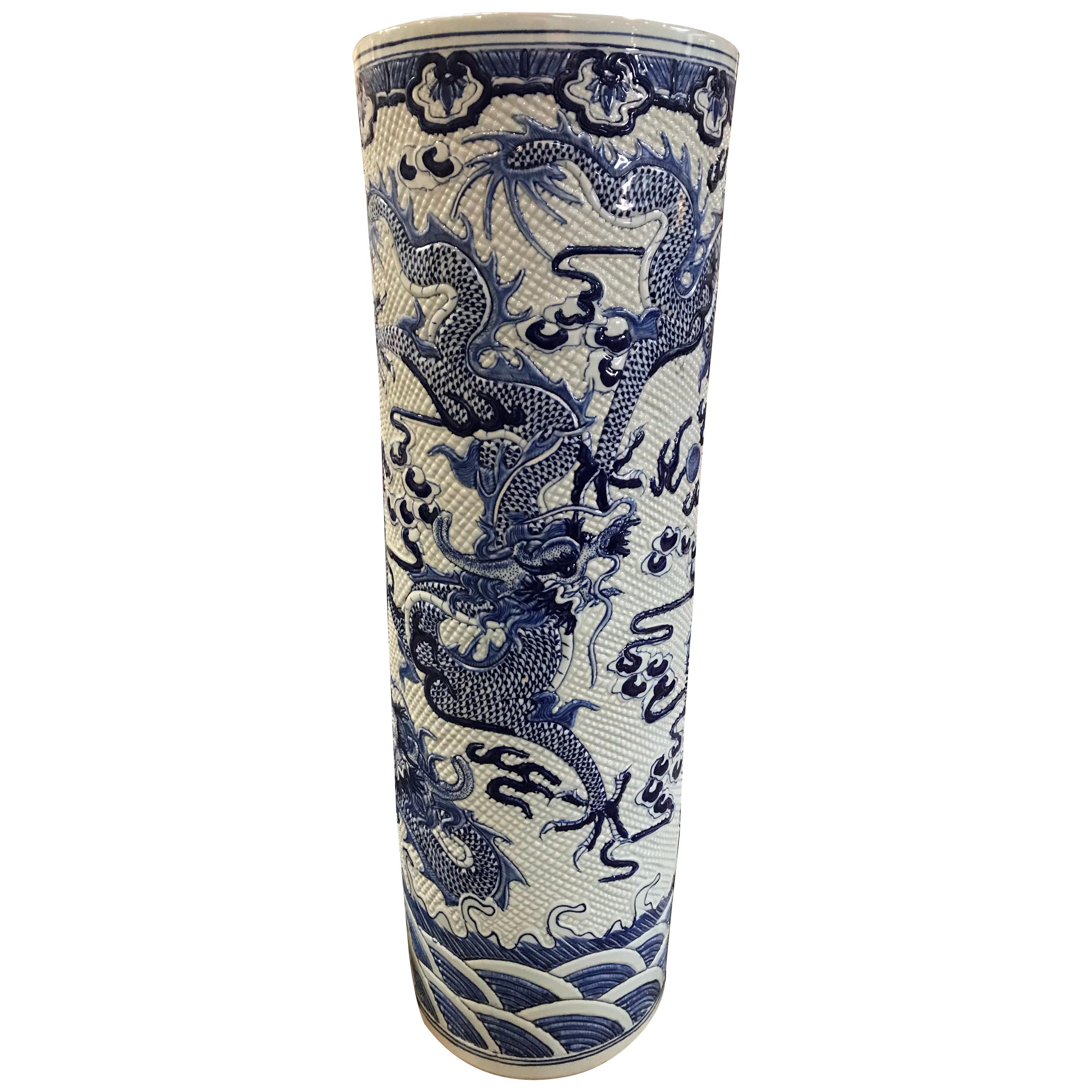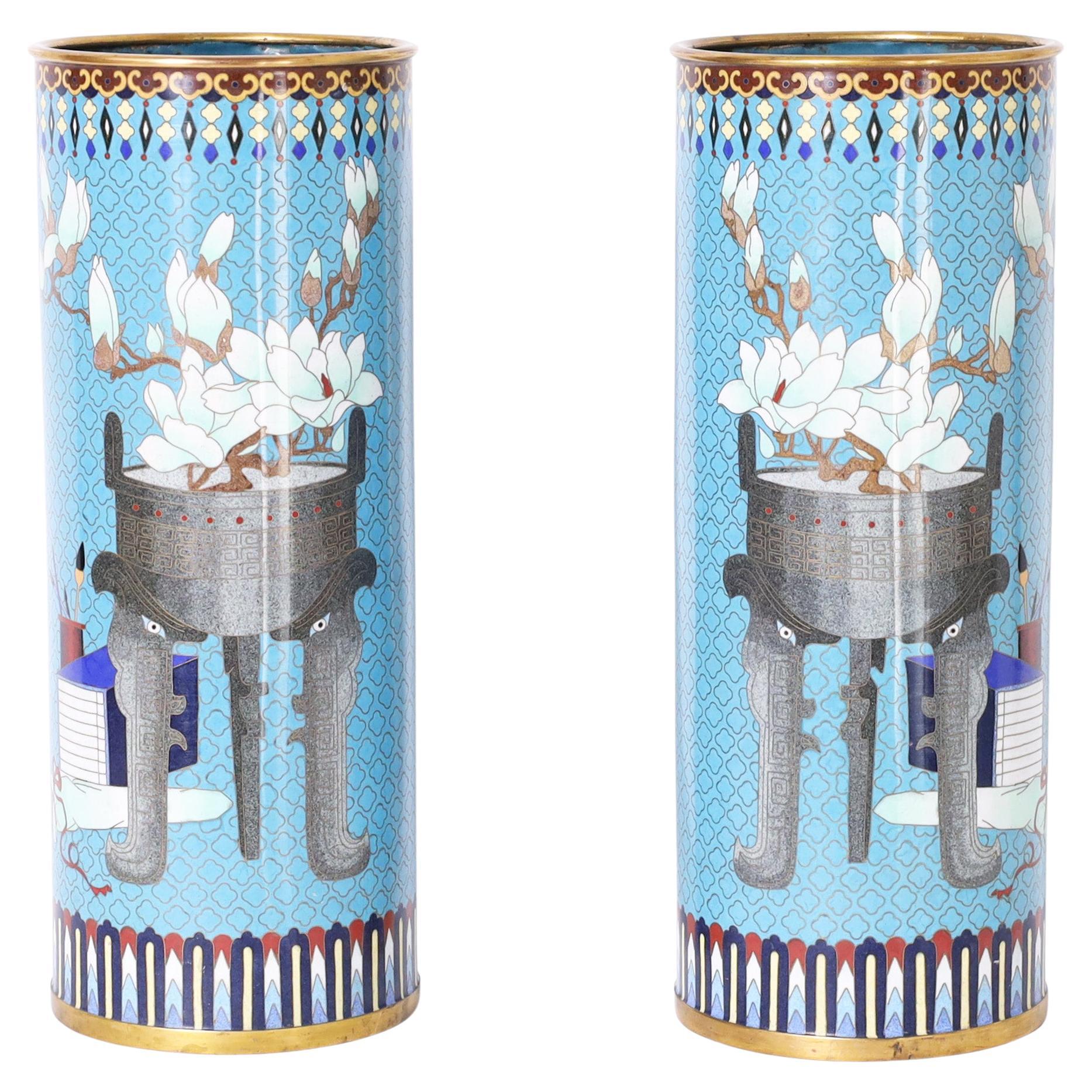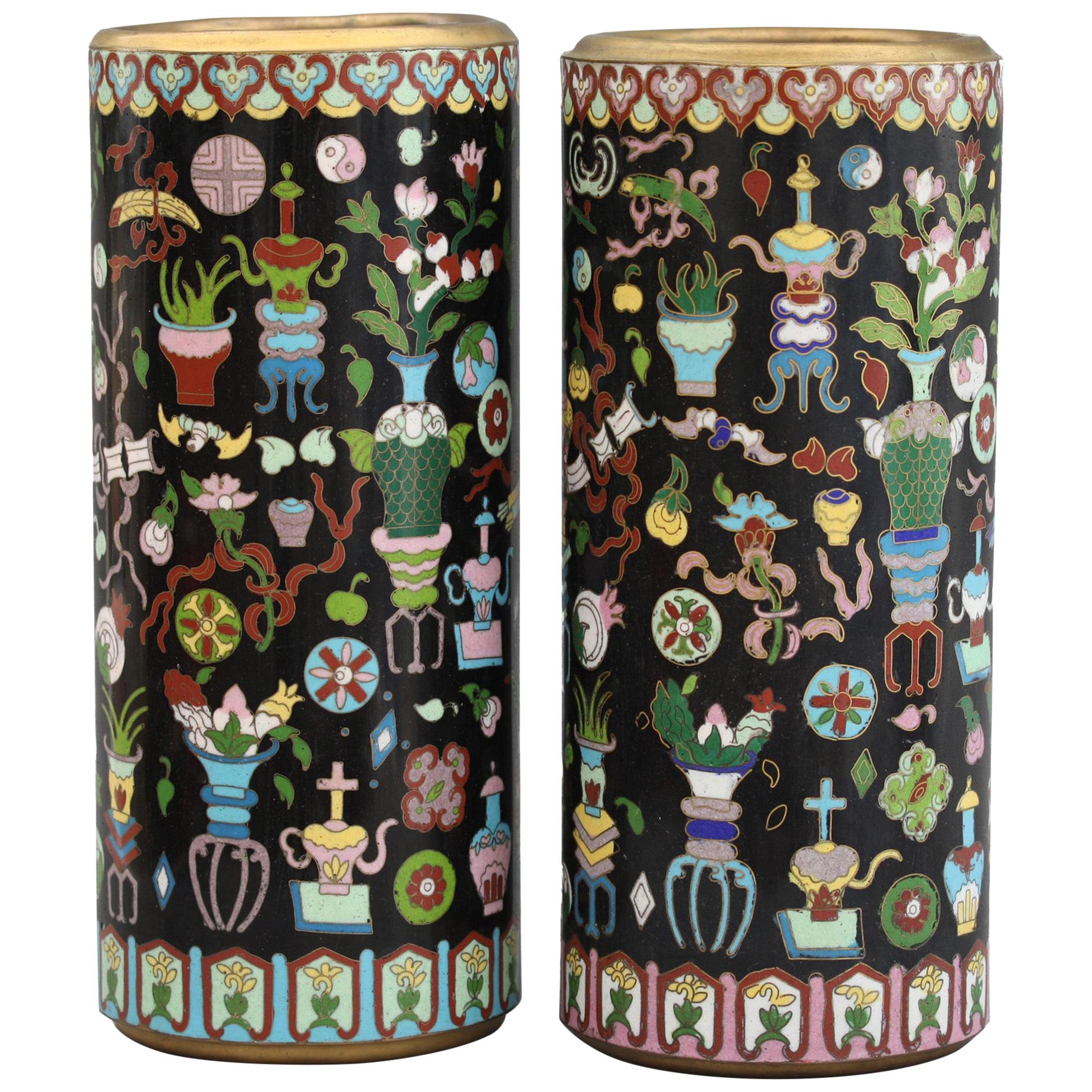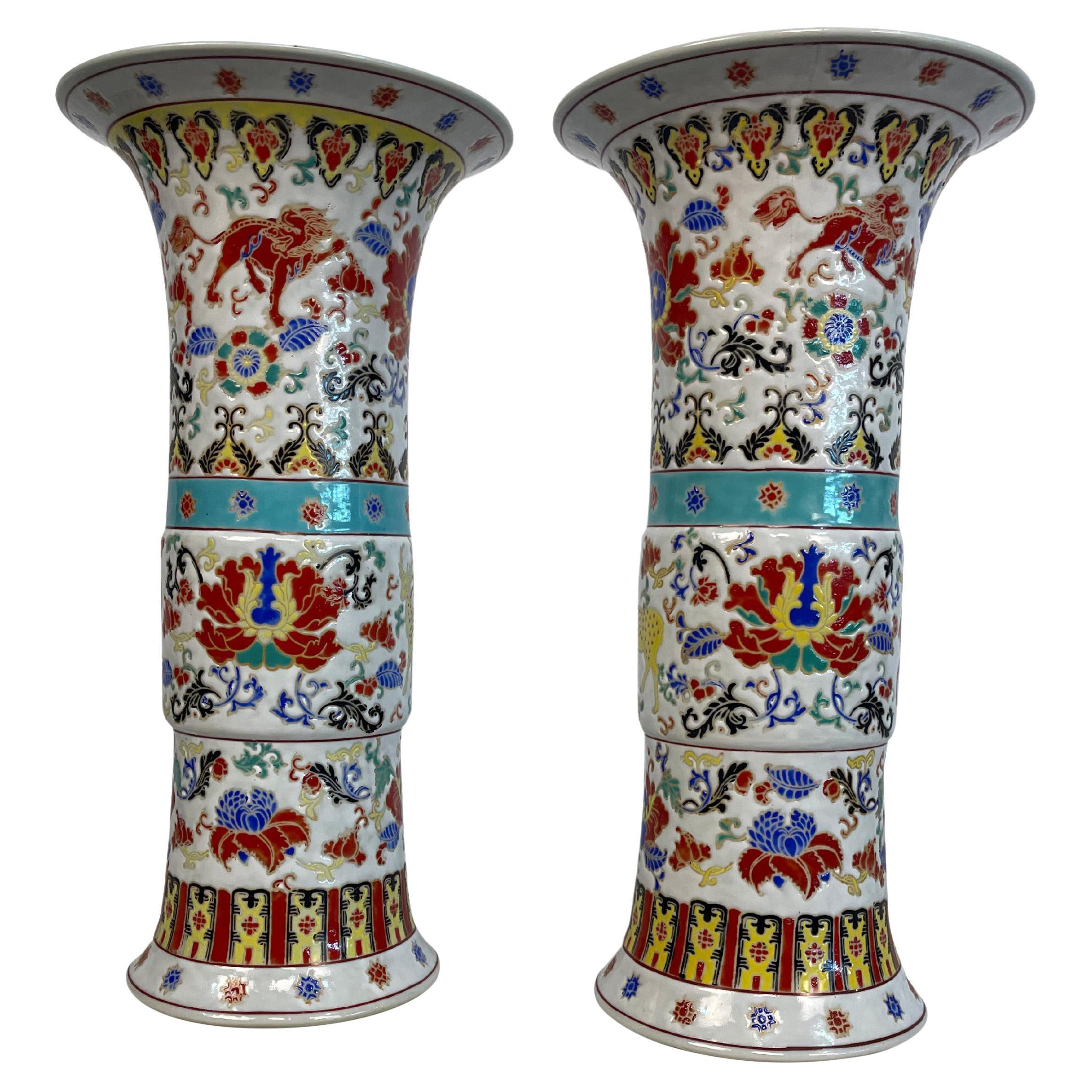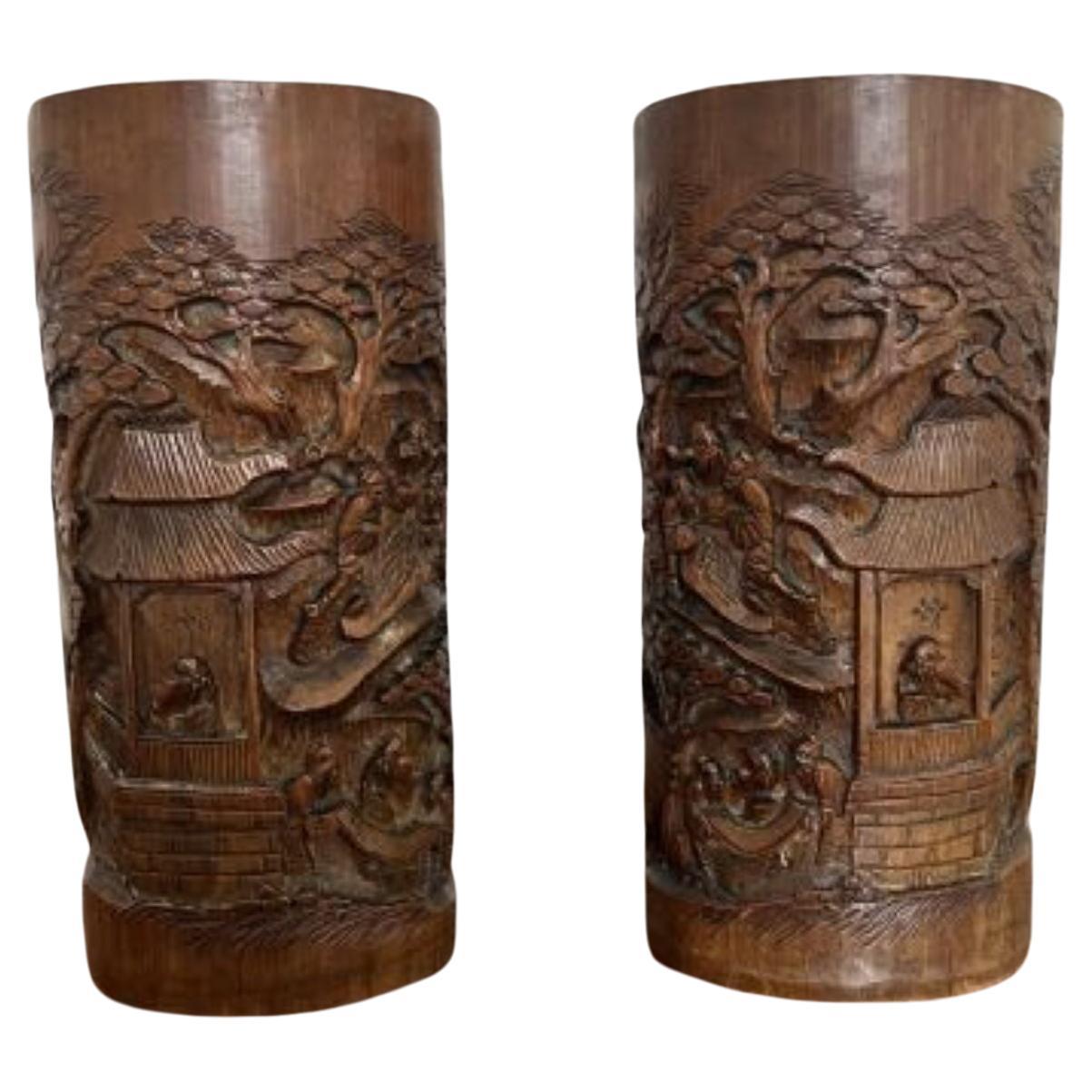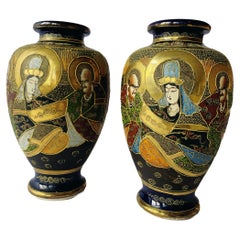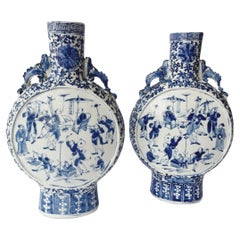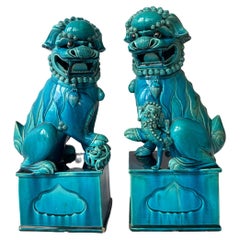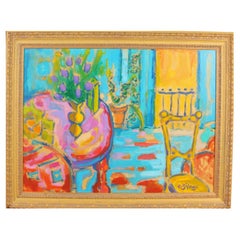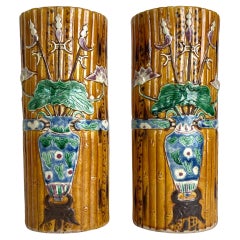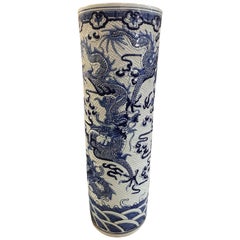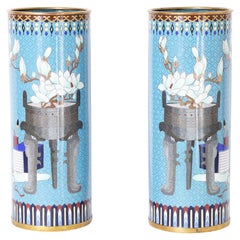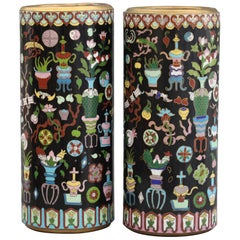Items Similar to Pair of 19th Century Qing Dynasty Faux Bamboo Chinese Vases
Video Loading
Want more images or videos?
Request additional images or videos from the seller
1 of 14
Pair of 19th Century Qing Dynasty Faux Bamboo Chinese Vases
$2,645.83per set
$3,307.29per set20% Off
£1,987.95per set
£2,484.94per set20% Off
€2,240per set
€2,800per set20% Off
CA$3,643.33per set
CA$4,554.17per set20% Off
A$4,077.56per set
A$5,096.95per set20% Off
CHF 2,134.46per set
CHF 2,668.07per set20% Off
MX$49,535per set
MX$61,918.74per set20% Off
NOK 27,102.20per set
NOK 33,877.75per set20% Off
SEK 25,575.55per set
SEK 31,969.44per set20% Off
DKK 17,048.63per set
DKK 21,310.79per set20% Off
About the Item
Faux bamboo Chinese vases were a type of decorative art that emerged during the Qing Dynasty (1644-1912) in China. These porcelain vases were designed to mimic the appearance of bamboo, a plant highly regarded in Chinese culture for its resilience, elegance, and symbolism. Bamboo is associated with attributes such as flexibility, strength, and modesty, making it a popular motif in Chinese art.
In the Qing Dynasty the color yellow held significant symbolism and represented imperial authority, power, and the emperor himself. Yellow was considered the most sacred and prestigious color in Chinese culture, and it had strong associations with the emperor's position as the Son of Heaven and the ruler of all under heaven.
The marks at the bottom of the vases indicate that these were crafted more specifically during the Tongzhi period – an emperor who reigned from 1861 to 1875, which effectively lasted nthrough his adolescence and was largly overshadowed by the rule of his mother, Empress Dowager Cixi. Although he had little influence over state affairs, the events of his reign gave rise to what historians call the “Tongzhi Restoration”, an unsuccessful modernization program.
The polychrome enamels representing on one vase a traditional Chinese kite and on the other a large lotus flower vase with three candles, further heighten the symbolism of the vases. As the emperor ascended to the throne as a child. Art and symbols were often employed to convey loyalty and respect to the imperial authority. The presence of lotus flowers and candles in the painting may serve as a way to wish the emperor purity, enlightenment, and good fortune. The Tongzhi period was marked by political turmoil and internal unrest, during such times, symbolic depictions in art, including kites, could carry subtle political messages or serve as a means of expressing dissent or hope for change.
- Dimensions:Height: 10.44 in (26.5 cm)Diameter: 4.34 in (11 cm)
- Sold As:Set of 2
- Style:Chinese Export (Of the Period)
- Materials and Techniques:
- Place of Origin:
- Period:
- Date of Manufacture:Late 19th Century
- Condition:Wear consistent with age and use.
- Seller Location:Ixelles, BE
- Reference Number:1stDibs: LU8924235546662
About the Seller
No Reviews Yet
Vetted Professional Seller
Every seller passes strict standards for authenticity and reliability
1stDibs seller since 2023
- ShippingRetrieving quote...Shipping from: Ixelles, Belgium
- Return Policy
Authenticity Guarantee
In the unlikely event there’s an issue with an item’s authenticity, contact us within 1 year for a full refund. DetailsMoney-Back Guarantee
If your item is not as described, is damaged in transit, or does not arrive, contact us within 7 days for a full refund. Details24-Hour Cancellation
You have a 24-hour grace period in which to reconsider your purchase, with no questions asked.Vetted Professional Sellers
Our world-class sellers must adhere to strict standards for service and quality, maintaining the integrity of our listings.Price-Match Guarantee
If you find that a seller listed the same item for a lower price elsewhere, we’ll match it.Trusted Global Delivery
Our best-in-class carrier network provides specialized shipping options worldwide, including custom delivery.More From This Seller
View AllPair of Japanese Moriage Satsuma Vases with Gold Gilding Circa 1930-1940
Located in Ixelles, BE
Japanese Satsuma vases from the circa 1930-1940 period are a particular style of ceramic art that originated from the Satsuma province of Japan. Satsuma ware is renowned for its intricate hand-painted designs, rich colors, and distinctive crackled glaze.
Satsuma ware dates back to the early 17th century, but it gained widespread popularity in the late 19th and early 20th centuries, including the 1930s and 1940s. Satsuma vases produced during this time often reflected a mix of traditional and modern influences, as Japan went through a period of cultural exchange and artistic experimentation.
Satsuma vases are made from a type of Japanese earthenware clay known for its fine texture and malleability. The vases are hand-formed or wheel-thrown and then meticulously hand-painted with intricate designs using enamel paints. The distinctive crackled glaze was achieved by firing the vases at a relatively low temperature, allowing the glaze to crack during the cooling process.
The moriage technique involves applying three-dimensional, raised ornamentation to the surface of the ceramic piece, creating a visually textured and layered effect. Artisans create three-dimensional patterns, designs, or intricate motifs using a special mixture of clay, slip, or porcelain paste. The raised elements are added by hand to the ceramic body, and each detail is carefully shaped to achieve the desired effect.
The moriage is then gold gilded as some of the intricate ornamental patterns and the halos around the three immortal...
Category
Early 20th Century Japanese Showa Ceramics
Materials
Pottery
Pair of Moon-Shaped Vases, China Late 19th Century
Located in Ixelles, BE
A pair of large moon-shaped "flasks" vases painted in blue and white, each flask decorated with scenes of active characters and surrounded by borders of floral motifs and foliate pat...
Category
Antique Late 19th Century Chinese Antiquities
Materials
Porcelain
$63,310 Sale Price / set
20% Off
Large Pair of Graduated Turquoise Porcelain Foo Dogs. Chinese Circa 1880
Located in Ixelles, BE
Chinese turquoise-colored porcelain foo dogs from circa 1880 are exquisite examples of traditional Chinese ceramic art. Foo dogs, also known as guardian lions or temple lions, are ic...
Category
Antique Late 19th Century Chinese Qing Ceramics
Materials
Ceramic
$8,220 Sale Price / set
20% Off
Antoine Giroux Fauvist Painting - Interior - Ref 143
By Antoine Giroux
Located in Ixelles, BE
Antoine Giroux: Capturing the Vibrancy of the Mediterranean
Born in Brussels in 1955, Antoine Giroux's journey to artistic expression took a unique path through the realms of music ...
Category
Late 20th Century Belgian Paintings
Materials
Wood, Paint
Antoine Giroux Fauvist Painting - Still Life - Ref 176
By Antoine Giroux
Located in Ixelles, BE
Antoine Giroux: Capturing the Vibrancy of the Mediterranean
Born in Brussels in 1955, Antoine Giroux's journey to artistic expression took a unique path through the realms of music ...
Category
Mid-20th Century Belgian Paintings
Materials
Wood, Paint
$1,133 Sale Price
20% Off
Antoine Giroux Fauvist Painting - Floral Bouquet - Ref 226
By Antoine Giroux
Located in Ixelles, BE
Antoine Giroux: Capturing the Vibrancy of the Mediterranean
Born in Brussels in 1955, Antoine Giroux's journey to artistic expression took a unique path through the realms of music ...
Category
Mid-20th Century Belgian Paintings
Materials
Wood, Paint
You May Also Like
A pair of faux bamboo vases in porcelain. Chinese, late 19th Century
Located in Knivsta, SE
A pair of faux bamboo vases in porcelain. Made in China during the late 19th Century.
Very charming with beautiful colors.
Wear consistent with age and use
Category
Antique Late 19th Century Chinese Vases
Materials
Porcelain
Pair of Chinese Cylindrical Vases
Located in Dallas, TX
Pair of oversized Chinese cylindrical vases. Beautifully detailed ceramic jars with blue and white dragons. Textured surface. Over scaled for vis...
Category
20th Century Chinese Sculptures and Carvings
$6,720 / set
Pair of Antique Chinese Cloisonné Vases
Located in Palm Beach, FL
True pair of antique Chinese cloisonne vases decorated in an unusual composition depicting flowers in a stand against an alluring blue ...
Category
Early 20th Century Chinese Chinese Export Vases
Materials
Metal
$2,650 / set
Pair of Chinese Cloisonné Cylindrical Precious Object Vases
Located in Bishop's Stortford, Hertfordshire
An exceptional and stunning pair cylindrical Chinese cloisonné enamel sleeve vases dating from the early 20th century, probably late Qing. The tall pair of vases...
Category
Early 20th Century Chinese Qing Metalwork
Materials
Metal
$2,205 Sale Price / set
35% Off
Free Shipping
Pair of 20th Century Yongzheng style Chinese Porcelain Vases in High Gloss
Located in Essex, MA
Pair of Yongzheng style Chinese porcelain vases in a high gloss finish in the Gu shape. The vases are decorated with deer, flowers, and animal motifs. Lovely shades of aqua, turquois...
Category
20th Century Chinese Chinese Export Urns
Materials
Porcelain
Stunning pair of antique Chinese quality carved bamboo brush pots
Located in Ipswich, GB
Stunning pair of antique Chinese quality carved bamboo brush pots having a quality pair of antique Chinese brush pots with quality carved decor...
Category
Early 20th Century Chinese Sculptures and Carvings
Materials
Bamboo
More Ways To Browse
Antique Chinese Vases
Chinese Antique Vase
Qing Emperor
19th Century Faux Bamboo
Chinese Qing Dynasty Paintings
Qing Dynasty Painting
Emperor And Empress
Vase Qing Dynasty 19th Century
Antique Kites
Qing Enamel Vases
Emperor Empress Art
Qing Dynasty Vase Pair
Pair Of Chinese Qing Dynasty Vases
Qing Dynasty Vase Export
Bamboo Porcelain Vase
Chinese Throne
Lotus Candle
Chinese Emperor Painting
